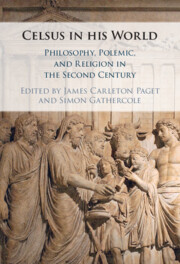In Ambrose’s apologetic writing against the Roman prefect Symmachus, he makes a surprising argument for Christianity’s superiority over Roman religious practices, arguing that Christianity is in fact a newer and therefore superior form of religion. The whole world has “progressed” and so must religious practices. In the letters to Symmachus, Ambrose’s arguments are ad hoc and apologetic, not constructive. This article seeks to understand better the intellectual and historical contexts that make Ambrose’s surprising convictions possible by looking at Ambrose’s writings on creation in the context of the pro-Nicene debates. Considering Ambrose’s writing in the Hexameron, I argue that Ambrose’s account of cosmological progress finds an intellectual milieu in pro-Nicene reflection on the implications of Christ’s divine consubstantiality for a doctrine of creation. When Christ is no longer seen as a mediator between God and the world, a new space is opened up to speak of creation’s change and even “progress” without a worry that doing so will jeopardize creation as the divine handiwork. Ambrose’s apologetic strategy, though apparently not directly related to pro-Nicene debates, is illuminated when seen against this backdrop. The result is a better understanding both of Ambrose’s strategies in particular and of the situation of fourth-century apologetics more broadly.
